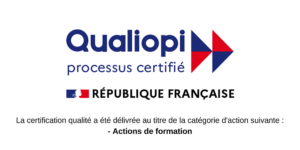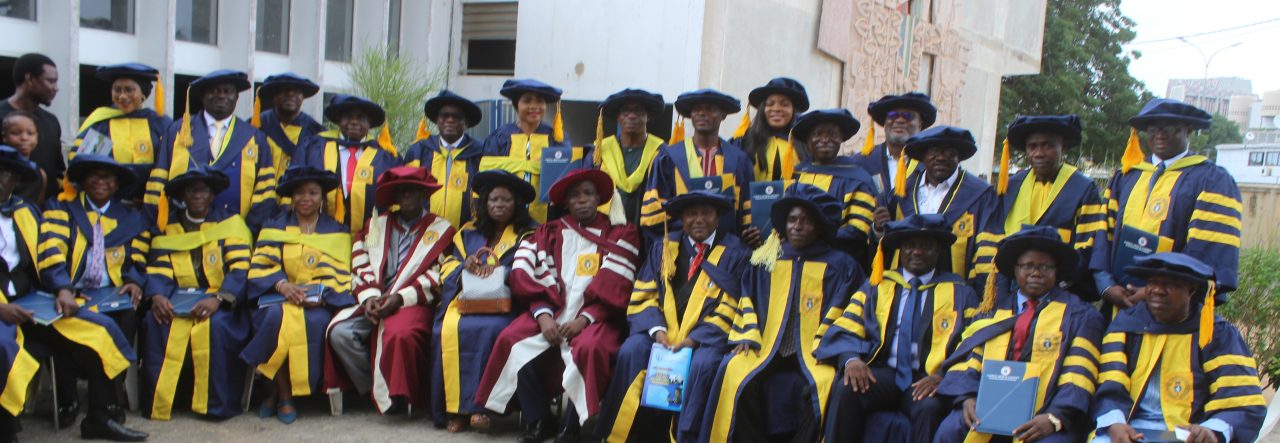- Welcome to Paris Graduate School
- Online Portal
- Verification


PhD by Research
Duration: 18 to 36 months FEES: 18 000 Euros per year ( non-subject to VAT) Full-time or part-time online
Retention rate: TBD Placement rate: TBD
Introduction
Admission requirements
Applicants should be holders of either a relevant Master’s degree or the Level 7 Diploma. Admission may also be granted to non-graduates with a minimum of Five years’ work experience in the field of study or a related field.
All applicants should have the following English proficiency: – Minimum English IELTS 6.5 or an approved equivalent. (Recommended English IELTS 6.5 level or an approved equivalent) or – Our internal english test (online)
Present an acceptable concept paper / synopsis of the intended research area.
Objectives of the Programme
- Widen access to quality higher education
- Provide students with quality education conducive to becoming competent and innovative members of society, responsive to the changing needs of society
- Equip students with competences and innovativeness in entrepreneurship and technology within the context of the changing needs of society
- Develop requisite infrastructure
- Recruit, develop and retain staff
- Develop and maintain high quality teaching, research, publication, management systems and consultancy
- Broaden the funding base of the School, and prudently manage resources
Introduction to Advanced Research for PhD Students
- Proposal Development Process
- Preparation for Field Research
- Field Research
- Report Writing
- Supervision
- Submission of thesis
Research Methods for Managers:
The purpose of this module is to enable students to develop understanding and skills in research design, research methods and research presentation. Assessment : Thesis with oral defense (60 ECTS credits)
Next sessions
The PhD is a continuing process throughout the academic year and there are no dates specified.
Course leader
Dr kenan bakht.
Director for Academics Affairs
Application deadlines The contract must be signed at least 15 days before the start of the session.
Teaching and Learning Approaches
Teaching and learning approaches.
The delivery will consist of FOUR components:
- Lecture session
- Tutorial session
- Practical session
- Blended Learning
Lecture Session
Lectures will be of a maximum duration of 3 hours (with a 10–15-minute break during the period) the purpose of a lecture is to provide key information to the students for the subject being taught.
On occasions, lecture exercises are used which require course participants to become actively involved in "learning by doing", let students take active part in discussing related current topics.
Tutorial Session
Tutorials will be provided through case studies for the students to further discuss and/or undertake the topics previously covered in the lecture sessions.
Students will be given video/written case studies after each lecture topic and work in groups.
Practical Session
Practical sessions are mainly undertaken in the computer laboratories, or workshop activities are set up to enable the learner to reflect on the processes he or she has experienced. Workshops enhance skills development and the acquisition of knowledge. Short presentations alternate with group work. Students spend time working together in small groups, brainstorming, analysing case-studies, carrying out group discussions or group exercises, learner presentations, role play, plenary feedback session.
PGS Blended Learning Portal
Pedagogy is rapidly changing. Pedagogy requires meaningful classroom interactions between educators and learners.
Passing grades and equal
The Candidate shall be rated as follows:
Evaluation of the courses at the end of the session. Confirmation of the questions already answered on the application online.
Updated at 07/13/2022
- Innovative Knowledge Institute Paris Graduate School
- 10 avenue Kléber
- 75116 Paris, France
- DA 11756550875
- +33 1 73 48 14 42
- [email protected]
- The courses are taking place at
- Accord - Ecole de Langues
- 3bis rue Jean-Pierre Bloch
- 75015 Paris, France

Subscribe to Newsletter
Sign Up to Our Newsletter to Get Latest Updates & Services
Paris Graduate School © 2024 | All Rights Reserved | Privacy Policy
Privacy Overview
- ENLIGHTEN THE FUTURE

International dual PhD programme
The international dual PhD degree programme promotes doctoral mobility and scientific cooperation. It is an unique opportunity for a PhD student enrolling in the first year of a thesis, to carry out his/her research work under the responsibility of at least 2 PhD supervisors (Université Paris Cité – partner university) for the entire duration of the PhD.

PhD supervisors must hold an accreditation to supervise research or equivalent. The PhD student is required to spend his/her study period alternately in at least both institutions.
For more information
What is an international dual PhD degree ?
It is a PhD degree, carried out both in a French institution of higher education and one or several foreign higher education institutions. The PhD student is therefore directed by a thesis supervisor in each institution. The student utimately obtains at least two degrees: one from the French higher education institution and the other from one or several international partner institutions.
Who can apply for it?
The future PhD supervisor of Université Paris Cité must be at the initiative of the dual PhD degree programme request or application.
The International Relations and Strategy Office (IRO) is responsable for the instruction of the international dual PhD degree agreement. They establish the terms and conditions of the thesis: duration, lengths of stay in each institution, the balanced payment of the registration fees, title of degrees, number of the defense jury’ members, place and deadline of the defense.
The College of the Doctoral School is in charge of the issues related to the thesis: pedagogical and administrative enrollment, defense…Etc
Note: the international co-supervision for a dual PhD degree agreement can be set up only during the first year of the PhD program in both institutions. Any request/application from a PhD student in a superior year will be refused by Université Paris Cité.
Application period
From June 15 th 2023 to November 30th, 2023
Procedures & Forms
All the steps listed below are destined to national and international students. They are required to set up a dual PhD and to obtain the doctor diploma from Université Paris Cité.
- Dual PhD request form
- Modification/extension request form
- Withdrawal form
Rules and Regulations
The decree of May 25, 2016 sets the national framework for training and the procedures leading to the issuance of the national doctoral diploma and more importantly the dual PhD supervision (under Article III)
- It sets out the elements that must be included in the international dual PhD degree agreement, such as “The terms and conditions for the constitution of the jury and the material, pedagogical and linguistic support of the students. It must include the following information:
- “The title of the thesis, the name of the thesis supervisor and the student, the name of the contracting higher education institutions and the nature of the prepared degree.
- The language in which the thesis is written; when this language is not French, the writing is completed by a substantial summary in French.
- The procedures for the recognition of training activities carried out in one or other of the higher education institutions.
- The arrangements for the payment of tuition fees in accordance with the pedagogical provisions adopted, without the doctoral student being obliged to pay fees in several institutions simultaneously.
- The health insurance coverage terms as well as the conditions of accommodation and financial aid that the doctoral student can benefit to ensure his/her mobility.”
The decree of May 25, 2016 also states that:
- “The thesis gives rise to a unique defense. (…)”.
- “The terms and conditions for the protection of the subject, the filing of reports and the reproduction of theses, as well as those for the management of the research results common to the laboratories involved, their publication and their exploitation, are decided in accordance with the specific legislation of each country involved in the preparation of the thesis and specified by the convention.”
Setting up an International Dual PhD Degree
You will find below the steps to implement a dual PhD, which will lead to the signature of an agreement between the two institutions that will set in motion the administrative and pedagogical formalties to award the double diploma. This agreement will also enable to legally protect the research of the PhD candidates in regards to intellectual property, confidentiality and publications.
1.Preparation of the dual PhD request
First the student needs to find two thesis supervisors, one in Université Paris Cité, the other in one foreign university or more.
Caution: Only the researchers with an authorization to direct researches (HDR) can supervise a thesis in France. If you need, you can contact the doctoral school of your study/research field. It is not possible to have more than one thesis supervisor in each institution. If you already have a cosupervision, you will need to end it in order to establish a dual PhD.
- Refer to the list of doctoral school of the university
- Read the conditions carefully with the thesis supervisor from Université Paris Cité and follow the steps to set up the dual PhD:
- Fill out the dual Phd request form and have it signed by the thesis supervisor and the director of the doctoral school, in this order. The doctoral school will probably ask you to complete its admission procedure before signing
Please note: The dual PhD agreement can only be signed during the first year of PhD in both institutions. It is not possible to make a request if the student has already completed his or her first year in one of the two institutions.
The doctorants enrolled in Université Paris Cité in September must be aware of the academic calendar and the enrollment process at the partner institution.
- In Université Paris Cité, non-French student must enroll by the same way the French students do, following the calendar set by the CED (Doctoral School College).
- In case of registration fee waiver for the first year the student must complete his.her enrollment file on eCandidat and the enrollment team will get back to him.her once the agreement is signed.
- If the students must pay his.her registration fee in UP Cité for the first year, he will be able to finalize the enrollment process with the CED before the signature of the agreement if he complete and submit the dual PhD request form after. If he.she doesn’t the student will be considered as a regular student in UP Cité.
2. Examination of the request
The signed request form must be sent to the Strategy and International Relations Office (SRI/IRO) by the doctoral school. The dual PhD request will then be examined by the IRO to check its coherence and conformity regarding to the regulations and norms of the university. Additional informations can be asked to the thesis supervisors. Once the examination is completed, the IRO will contact the partner institution to start the negotiation related to the provisions of the dual PhD agreement.
3. Negotiation
The IRO will negotiate the dual PhD agreement with the partner.s institution.s in light of the informations communicated by the future thesis supervisors.
4.Signature
Once the parties agree on the terms, all the concerned persons sign the agreement. The institutions will sign one after the other respecting this order: Thesis supervisor à Director of the doctoral school à Institution head (President/Rector) or his or her delegate. The PhD candidate can sign at any time during the process. The IRO will be responsable for collecting the three signatures from UParis Cité and from the candidate as needed.
5.Validity of the agreement
Once all the signatures are collected, the dual PhD is set. It remains effective if the student registers in the two partner institutions for the entire period of his or her thesis. The IRO will send the signed version to all the concerned persons on UParis Cité’s side. The agreement will remain in effect until the defense deadline, which is generally the first three years of the PhD.
Note: If the student was not able to defend his or her thesis before the deadline in the agreement, he or she must make a request for an extension. For any change to the initial agreement (thesis supervisor, periods of stay, etc…), a modification request must be made (cf. requesting an addendum).
Requesting an Addendum (modification and/or extension of the agreement)
For any change or extension of the initial agreement, a modification request form must be given to the doctoral school, who will sign and transmit it to the International Relations Office. In the case of an extension request, the form must be completed at the same time as the usual derogation request, and must be transmitted to the doctoral school by all the PhD students at UParis Cité after the third year.
Once the IRO receives the request, we will follow the same steps as the setting up of the initial agreement, enabling to establish an addendum to it.
For the enrollment, while waiting for the addendum to be signed, the student can pay his or her fee in the institution indicated in the request form. However, in UParis Cité’s side, in case of a fee waiver for the concerned year, we will have to wait until the addendum is signed before the registration team can issue the registration.
In case of an extension, the addendum will be valid until the new defense deadline, that generally being one additional year.
Note: The addendum can only be signed for one year and if the student doesn’t defend his or her thesis before the new deadline, another addendum must be requested during the next year following the same procedures. As a reminder : In France, six years is the maximum duration of the PhD.
Defending your PhD Thesis
The CED and the Doctoral School (ED) are the dedicated contacts of PhD students for all questions whether they are of pedagogical or administrative nature.
Please note that organizing the PhD thesis defense takes time. Finding a jury and a defense date that suits everyone takes at least 3 months. If the date of the defense exceeds the validity of the dual PhD agreement or if it exceeds the date of the amendment for extension:
- Either a new amendment is drawn up following an extension request made by the student. Students are then required to enroll for the following year.
- Or the international dual PhD degree agreement is null and void, i.e. it expires given the agreement is no longer legally valid. The PhD will then lose the Cotutelle status. Students will be required to pay the tuition fees in Université Paris Cité for all the previous years, if in the case it has not already been done.
Three tips to succeed:
- Obtain information about the procedure for your PhD defense at Université Paris Cité (even if the defense takes place abroad). Inform the Doctoral School and the International Relations and Strategy Office (IRO) of the desired date of defense.
- To constitute the thesis jury, send a jury proposal to the Doctoral School (even if the defense takes place abroad).
- After the defense, the minutes of the exam board meeting, the defense report and the thesis must imperatively be sent to the College of the Doctoral School in order to be awarded of a PhD degree from Université Paris Cité.
Financial Support
International mobility grant from the French Government for an international PhD co-supervision. Scholarships from the French Government are awarded by the Ministry of Europe and Foreign Affairs for internships or language stays in France. A majority of them are awarded by the Cooperation and Cultural Action Departments of French embassies and General Consulates abroad. Read more
Eiffel scholarship . This scholarship programme offered by Campus France is designed to support the international recruitment efforts of French higher education institutions. It applies to three priority areas of study:
- Economics and management
- Law and Political Science
Programmes offered by Campus France
Existing international funding is listed in the Campus Bourses directory.
Binational institutions
These institutions aim to promote the academic collaboration between two countries. They are able to fund theses in dual PhD between the concerned countries:
- Université Franco-allemande
- Université Franco-italienne
Withdrawal from the International Dual PhD or From the PhD
In case of withdrawal, the dual PhD the withdrawal form must be completed and signed. It will enable us to define clearly whether the withdrawal only concerns the dual PhD procedure or whether it concerns the entire thesis. If it only concerns the dual PhD procedure then the student will be allowed to complete his or her thesis in one of the two institutions, according to his or her choice.
The IRO will determine on a case-by-case basis the measures that must be taken. It is possible that no further steps are required.
International Relations and Strategy Office
Grand moulins campus, 5 rue thomas mann 75013 paris, [email protected], odéon 85 boulevard saint germain paris 6e [email protected].

Paris-Oxford Partnership (POP) Annonces its Results
Faculty of Humanities and Social Sciences , International Partnerships , Research
The Paris-Oxford Partnership (POP) Evaluation Committee, composed of Université Paris Cité, CNRS, Institut des Etudes Avancées and Oxford University, announces the results of its calls for projects. The call aimed to facilitate and strengthen scientific collaborations...

Paris-Toronto Partnership launches its First Call for Proposals
International Partnerships , Research
Université Paris Cité and the University of Toronto are joining forces to launch their first call for proposals to support collaborative research initiatives. ObjectivesThe aim of the fund is to provide initial support for the development of research links and...
![phd by publication france [In Conversation] with Professors Anne Abeillé and Gabriela Bîlbîie](https://u-paris.fr/wp-content/uploads/2024/02/2024_PHOTOS-CHERCHEURES-1080x675.jpg)
[In Conversation] with Professors Anne Abeillé and Gabriela Bîlbîie
Faculty of Humanities and Social Sciences , International , Research
As part of Université Paris Cité's international guest researcher programme, Prof. Anne Abeillé is hosting Prof. Gabriela Bîlbîie, from the University of Bucharest in Romania. Our two professors are linguists specialising in theoretical and experimental syntax. We...
![phd by publication france [Equality Month] Three questions to Joëlle Kivits, Vice-President for Equality, Diversity and Inclusion](https://u-paris.fr/wp-content/uploads/2024/02/JK_cours2-1080x675.png)
[Equality Month] Three questions to Joëlle Kivits, Vice-President for Equality, Diversity and Inclusion
Campus , Université Paris Cité
We met Joëlle Kivits, Vice-President of Equality, Diversity and Inclusion, to find out more about the goals, highlights and new features of Equality Month 2024, which is being held throughout March at Université Paris Cité. Equality Month > Find out about the...

Home > Admissions > Admission to a PhD
Admission to a PhD
Candidates who already hold a Master's degree or equivalent and who wish to enter a PhD programme at thesis level, regardless of their previous studies (international or French), should apply directly online . The doctoral programme must be chosen carefully: only one application per year is possible, all doctoral programmes combined.
Degree requirements
- Criteria for the application evaluation
Application
Financing studies, co-supervised thesis, joint thesis, doctoral programmes in economics, history*, political science and sociology**.
Applications starting 11 October 2023
To be eligible for assessment, your application must be complete and submitted before:
- 10 January 2024 at 11:59pm (Paris time), for an admission result mid-March 2024
- 17 May 2024 at 11:59pm (Paris time), for an admission result mid-July 2024
Auditions for applicants may be organised on 18 June 2024 for the Doctoral programme in History (*) Auditions for applicants may be organised on 26 June 2024 for the Doctoral programme in Sociology (**).
Doctoral programme in Law
Only one admission session this year for the Doctoral programme in Law (*)
- 12 March 2024 at 11:59pm (Paris time) for an admission result from mid-April 2024
(*) This year, there will be only ONE admission session for the Law doctoral programme with results communicated from mid-April 2024. Contact: Professor Vincent Forray , Head of doctoral studies in Law
The PhD application is open to students with a Research Master's degree , a postgraduate degree (Diplôme d'Etudes Approfondies - DEA) or an equivalent degree (bac +5). There must be a match between the candidate's graduate studies and the discipline of the requested doctoral programme.
For the record, the IEP awards PhDs in Economics , History , Law , Political Science and Sociology . For candidates who do not have the required degrees to be directly admitted into the First thesis year, see admissions into Master’s programmes offered by the School of Research.
In Sociology only, the PhD application can only be reviewed if the thesis supervisor has provided you with a preliminary letter of consent and if a research unit Director has provided you with a preliminary letter of consent. In Economics, Law and Political science , no preliminary letter of consent is requested. In History , the name of the potential research supervisor must be indicated (in the “Personal statement” tab), no preliminary letter of consent is requested.
The candidate must identify a host research laboratory . See the list of Sciences Po's research units and affiliated researchers.
Sciences Po's Graduate School is careful to limit PhD admissions to students whose thesis proposal is likely to succeed. It is therefore important that the candidate have a developed vision of his/her thesis subject and the implications of this choice for his/her research and career plans. The thesis topic might change during the first months of the PhD programme, but it is important that the candidate formulate in the most precise and coherent way possible the key elements to evaluating his/her research project.
Criteria for the Application Evaluation
Several criteria are taken into account for the selection of candidates applying for a doctorate:
- The selection of the research problem must be supported by previous work.
- A presentation of the chosen methodology to address the given problem.
- An evaluation of the feasibility of the planned research from both a scientific and practical perspective. Some topics require access to areas or data that are not easily accessible.
- The candidate must also indicate his/her availability to produce a thesis. This is particularly important for employed candidates. (1)(See the section "Financing of studies" below).
- The financing of studies (See the section "Financing of studies" below).
- Finally, it is important that the candidate be able to explain his/her project in relation to his/her academic and/or professional background . The academic record should preferably be consistent and coherent. In all cases the requisite academic track record must be very good. Moreover, for employed candidates, the professional career must be explained and related to the thesis project: how might the candidate's professional experience tie into the thesis project? Is the thesis part of a professional development plan?
The application must be submitted exclusively online , according to the Admissions calendar.
Documents for your application may be uploaded in French or in English (CAUTION: only png, jpeg, jpg or pdf formats are accepted):
For all doctoral programs:
- Two academic recommendations (an optional professional recommendation may be added)
- Proof of identity
- Thesis project ( PDF or Word format, 5,000 words maximum, i.e. about ten pages, excluding bibliographic references)
- Thesis project synopsis (two pages, PDF or Word format)
- Copy of last completed academic degree (Master or equivalent)
- Master transcripts ( the documents must be attached in the original language, along with an official or informal translation in English or French if necessary. Please add a sworn statement of compliance if the translation is yours)
- If obtained, official proof of doctoral funding obtention (see the "Financing of studies" section below).
PLEASE NOTE : no supporting document will be accepted after the evaluation process has begun. Please make sure that your application is complete before submitting it. For candidates currently in the process of obtaining the requested diploma, please attach all the transcripts available at the time of your application. Incomplete applications will not be assessed.
Additional information for the following doctoral programmes
- If you have a potential supervisor in mind, please indicate his/her name after your Thesis project title in your online space
- Indicate at least one potential Thesis supervisor from Sciences Po’s Center for History in the “Personal statement” tab.
- The Thesis project mustn’t exceed 3,000 words excluding bibliography, that shouldn’t exceed 20-25 titles
- A grade of 16/20 or equivalent is required for the Master Thesis
Political science
- A signed letter from a thesis supervisor authorised to supervise research, indicating that he/she accepts to supervise your thesis ;
- A letter from the laboratory Director indicating that he/she accepts to host you in the laboratory (contact the laboratory Director) ;
- A grade of 16/20 (if graded) is required for the Master Thesis.
The result of the language test is optional.
- Economics: English C2, French
- History: French B2
- Law: English C2, French
- Political Science (Compared politics, International Relations, Political Theory) : French B2
- Sociology: French B2
CAUTION: "Required languages" is a mandatory field in our application file; i f you do not have a CECR test result or self-assessment to upload, please select "two years of study in the language" by default.
The €100 application fee is not refundable. We do not offer fee waivers, unless you have a refugee status or are a recipient of a CROUS scholarship. In that case, please contact us to inform us, and attach the official proof of your current situation to your file. Please note: Paying the application fee does not mean that your application form has been submitted. Make sure to submit your application form within the deadline by clicking on the “Submit“ button. If you are unable to pay by credit card, please contact the Admissions Department to obtain our bank details. Your payment will be validated on receipt of a copy of the proof of transfer.
Do not wait until the last day to submit your application. To be assessed, your application must be complete and submitted before the deadline of the programme you are applying to. Deadlines always refer to Paris time (23:59pm). Please note:
- As our platform does not automatically invalidate incomplete files, it is your responsibility to submit an application that includes all required documents (including references).
- Once you have submitted your application, you will not be able to bring any change, please be very careful.
Applicants may be contacted for an interview as part of the admission procedure.
In accordance with the decree of 25 May 2016 setting the national training framework and the procedures leading to the issuing of the national doctoral degree, the financial preconditions must be met to ensure the orderly conduct of the research work and preparation of the thesis. Doctoral funding is therefore necessary to engage in a doctoral thesis. The doctorate is full-time at Sciences Po (except in the particular case of full-time employees who work on a research subject directly related to their job and have obtained the employer's agreement to have the necessary time to carry out their research) and the funding must meet the following criteria :
- a duration of at least three years;
- a net monthly amount akin to that of the doctoral contrat in force ;
- the obligations attached to the financing must not represent more than one day per week (with the exception of CIFRE, where the obligations must be assessed on a case-by-case basis);
- the funding organisation must respect the academic freedom of the doctoral student regarding the content of his research and the composition of the defense jury;
- funding must not come from personal resources but from public or private organisations (foundations, associations, companies, public authorities, international organisations, local authorities or others to be validated beforehand by the doctoral school) offering doctoral funding.
For more information on funding opportunities, see the section on Funding .
For all students entering the PhD programme, the annual fee for 2022/2023 is 380 euros, irrespective of tax residency.
In addition to receiving guidance from their thesis supervisor, some PhD students receive assistance from another Professor or Researcher who may be based in a different institution.
The role of this co-supervisor must be formalised through a co-supervised thesis agreement established :
- between the PhD student's institution and the co-supervisor if the co-supervisor works at a different institution, or
- between the supervisor and co-supervisor if both work at IEP Paris. At Sciences Po the co-supervision is formalised through an exchange of letters.
The PhD student will obtain a PhD from his/her home institution. The co-supervisors commit to following the PhD student's work and to sit on the thesis examining committee. The thesis will explicitly state it was co-supervised and include the names and titles of the co-supervisors on the thesis cover page.
The Administrative Officer of the program must be informed of the co-supervised for validation.
The joint thesis involves guidance from two supervisors : a professor at IEP Paris and a professor from a foreign institution. It allows the issuance of two PhD degree, or of a joint degree where applicable. In France, joint theses are governed by the amended decree of 6 January 2005 on international joint theses (PDF, 45Ko) At Sciences Po, joint theses may only be permitted if:
- The student has already been admitted to Sciences Po
- The two thesis supervisors approached have conferred and provided their consent in writing.
Joint theses require the establishment of an agreement signed by all the partners (individuals and institutions). The three-year agreement must cover, among other things, the terms of registration, tuition, and the defence. It must be established in the first thesis year: see the section below on administrative procedures .
A joint thesis only makes sense and is only possible if the research project is shared by two institutions. In cases where this condition cannot be met, the student might consider a co-supervision , which also provides guidance from two supervisors, but does not allow the issuance of a dual degree. A joint thesis allows the student to:
- have access to greater resources (documentary resources, networks)
- pursue international career opportunities.
- Have access to, joint thesis scholarships covering the costs of joint theses (student's residence and defence fees)
Disadvantages
Joint theses may be difficult if the thesis supervisors have divergent views on the PhD student's work, or if the institutions' rules are too far apart.
In this case, the student might consider a co-supervision, which also provides guidance from two supervisors, but does not allow the issuance of a dual degree.
Administrative procedures
Even if the student is already enrolled in a foreign university, he/she must also be admitted to Sciences Po's at the thesis level.
Upon admission, the student must submit his/her joint project to the administration (administrative manager).
The agreement must include the following information :
- The university of primary enrolment
- Terms of tuition payment
- Terms of the defence
- Terms of sharing the defence fees
Once the agreement is signed, all parties will receive a copy.
If any breach of agreement should arise, management should be contacted.
Tuition fees will be paid in accordance with agreement. However, until the agreement is signed, the student is liable for the tuition at both institutions.
The organisation of the defence is framed by the agreement.
- For the presentation of the thesis, certain specific rules must be observed. See "Presentation Norms" on the page "Defence"
- For more on submitting a thesis in a foreign language, see the "Defence" page.
- Some foreign universities require a pre-defence. Inquire with the relevant academic authorities.
Submit an application
Admissions report
Application Guide
Tuition Fess & Scholarships
Careers Services Guide
Fees & Financial Aid
Limited financial resources are not a barrier to receiving a Sciences Po education.
Nearly one in three students receives a full-fee scholarship.
- Tuition fees
- Scholarships and financial aids
Applicants guide
Address / phone
27, rue Saint Guillaume - 75337 Paris Cedex 07
Phone: +33 (0)1 45 49 50 50 | +33 (0)1 42 22 31 26
SUBSCRIBE TO OUR NEWSLETTERS
A to Z Index
Legal terms
Quick links
Student account
Faculty account
Manage my password
Sciences Po App
© 2024 SCIENCES PO
- Skip to main navigation
- Skip to main content
- Skip to search
- Arts and Humanities
- Health sciences
- Science and Engineering
- Future international student
- International student
- Doctoral Candidate

Sorbonne University, an attractive environment for PhDs

Doctoral College and Schools

Application and admission
Envoyer cette page à un ami.
- Skip to content
- Go to accessibility page
Undertaking a PhD in France
Are you considering doing your PhD in France? Below, discover everything you need to know. Learn more about the application criteria, project development process, and types of PhDs.
Advanced degree
In France, a PhD is the highest academic degree you can earn. Doctoral studies are a form of research-based training with the same value as professional experience. PhD students carry out research on a defined topic under the supervision of their thesis advisor(s).
PhD students are enrolled in doctoral programmes run by institutions of higher education (i.e., universities or grandes écoles ), but they are trained within research laboratories. Students carry out original scientific research either on their own or as part of collaborative projects; the results form the basis for their dissertations. Students must also go through a thesis defence in which they present their findings to a committee that judges the quality of their work. Those who succeed are awarded doctoral degrees.
Generally, earning a PhD requires 3 years of full-time research. One-year extensions may be granted under certain circumstances. In exceptional cases and for compelling reasons, a student may request a leave of absence of up to 1 year. Such requests are only granted once, upon approval by the establishment’s director. Any leave of absence is excluded when calculating thesis duration, given that the student suspends their training and research during that period.
To be eligible for doctoral studies, you must have a master’s degree. This requirement can be waived by an establishment’s director if approval is granted by the doctoral programme’s administrators. You need to show that you have an equivalent level of education or professional experience.
PhD programmes frequently have an international component. For example, doctoral students often take part in joint degree programmes or dual degree programmes, a situation that is facilitated under French law.


Status of doctoral students
In France, the status of doctoral students depends on their funding source. Anyone doing a PhD is officially recognised as a student because they must be enrolled in a doctoral programme at an institution of higher education. In addition, many are also salaried workers because they are contractual employees.
International doctoral students with foreign grants have the status of students in France.
There are different types of doctorates in France. Here are some common examples:
Traditional PhD
- 3 years of work in a single research laboratory
- Leads to a French degree
- Enrolment and thesis defence occur at a single institution
- Single thesis advisor (or co-advisors, if necessary)
Jointly supervised PhD
- Thesis jointly supervised by a set of co-advisors—one from the student’s main research laboratory (affiliated with the enrolment institution) and one from a separate institution, either in France or another country
- Enrolment and thesis defence occur at the institution affiliated with the main research laboratory
- Single degree granted by the above institution
- Thesis research might arise from a national and/or international collaboration
Dual degree PhD
- Thesis jointly supervised by a set of co-advisors, with research taking place in two laboratories
- Individual dual degree agreement ( convention individuelle de co-tutelle ) establishes a research framework
- Enrolment occurs at two institutions—one in France and one abroad
- Tuition is paid to a single institution
- Single thesis defence but two degrees (one from each institution)
Professional PhD
- Research carried out at a private company partnered with a publicly funded laboratory and its affiliated institution of higher education
- Thesis jointly supervised by a set of co-advisors—one from the company and one from the laboratory
- Work is split between the company and laboratory
- Student contractually employed by the company
- Degree is granted by the institution of enrolment
- Excellent opportunity to gain professional experience
Doctoral training
The first step in your doctoral studies is to enrol at an institution (university or grande école ) with an official PhD programme that is under the aegis of the French Ministry of Higher Education and Research. Such doctoral programmes are structured to provide a high level of personalised training and supervision during your thesis work:
- You are under the supervision of one or more thesis advisors
- You carry out your work within an affiliated research unit and take part in laboratory activities
- You can participate in courses and seminars designed to establish a solid scientific foundation and guide the development of your research
Your thesis committee will ensure your studies are advancing smoothly, notably by evaluating your training conditions and research progress. To enhance your employability, your doctoral programme and thesis advisor will
- Encourage you to attend national, European, and international conferences and publish in national, European, and international journals
- Design a training programme compatible with your PhD project
- Help you exploit your skills and training
In France, you can write and defend your thesis exclusively in English. However, your thesis summary must be translated into French.
Your PhD project
To begin your PhD, you must find a host research laboratory, a thesis topic, a thesis advisor, and funding. We recommend that you begin this process at least 1 year before your target start date. You can begin by looking at the list of thesis topics posted by doctoral programmes and institutions of higher education. You can also directly contact laboratories working in your area of interest. As a general rule, your future thesis advisor will help you with funding.
International students may be able to find other sources of funding, such as fellowships from embassies, the governments of their home countries, and/or partnership agreements between institutions.
Enrolling in a doctoral programme
Once you have resolved all of the above, you must submit your project to your doctoral programme for approval. Your thesis advisor and the laboratory director will evaluate the quality and feasibility of your proposal.
If their assessment is favourable, the director of the doctoral programme will allow you to enrol. You will be informed of the decision by the head of the doctoral programme (the university or grande école president). The French Ministry of Higher Education and Research establishes the amount of tuition paid by bachelor’s, master’s, and doctoral students. Tuition levels are the same everywhere in France.
In 2023, annual tuition for doctoral students was €380. There is also a campus activities fee (CVEC) of €92. In certain cases, both may be waived.

Useful link
- Getting a PhD in France—directory of doctoral schools
Related articles
- Doctoral studies at INRAE
- Joining INRAE
- Working conditions & benefits
- Publishing results & managing data
Last update: 20 March 2024

- An unforgettable adventure
- Educational excellence in France
- Study at the heart of Europe
- Enjoy numerous benefits
- Industrial dynamism and French innovation
- The art of living à la française

- French system
- Higher education institutions
- French degrees, LMD system and equivalences
- Cost of studies
- Quality of degrees and institutions
- Online or distance programme
- Scholarships programmes
- Scholarships for French students or students living in France
- Welcoming of students and researchers in exile

- Student and Campus Life Contribution (CVEC)
- Reception services in your city
- Prepare your budget
- Bank account
- Working while studying in France
- Learning French
- Finding a student sponsor
- Organising your stay as a scholarship holder
- Being a student with a disability in France

- French regions
- French language
- Getting around
- Join the France Alumni network
- Finding work in France
- How to start a company in France

- Le séjour de recherche
- The role of Campus France
- The tools of Campus France for international researchers
- Research Labs
- Mapping French research
- Outstanding French researchers
- Overview of French research by field
- Excellence of French research in videos
- Accueil des étudiants et des chercheurs en exil

- What is involved in a Doctorate in France?
- Doctoral Schools directory
- PhD subjects
- Pre-Doctorate programmes
- How to enrol in a Doctorate
- How to finance your Doctorat (PhD)
- Use the "Research" portal
- FAQ – Doing my Doctorate in France

- Study in a Post-Doctorate in France
- Join a summer school
- Come to France with the status of invited professor

- Reception programmes and doctoral student associations
- Apply for your visa / Validate your residence permit
- Prepare for your arrival in France
- Finding accommodation in France
- Social Security for doctoral students and researchers
- Living in France

- Programs with Sub-Saharan Africa countries
- Programs with Asian countries
- Programs with European countries
- Programs with Oceania countries
- Programs with American countries

- Campus France missions
- Campus France organisation
- Campus France activities by geographic area
- Events organised by Campus France
- Public procurement
- Mobile applications

- Operation and governance
- Joining the Forum
- Member benefits
- Committees and workshops
- Updating your information online

- France Alumni network
- European projects
- Choose France, La stratégie d'attractivité des étudiants internationaux
- The French+Sciences program

- Campus France expertise
- Make Our Planet Great again
- Le programme « Partenariats avec l’enseignement supérieur africain »
- Le programme de bourses IsDB-France
- Scholarships program for Syrian students in exile in France
- Pakistan: Higher Education Commission scholarships programmes
- Les bourses pour les étudiants français ou résidant en France

- L'accueil des étudiants internationaux
- Label Bienvenue en France
- Nos événements
- Le réseau des responsables de l'accueil
- L'accueil des étudiants réfugiés et en exil
- L'accueil des étudiants en situation de handicap
- Les mémos de Campus France
- Afrique du Sud
- Burkina Faso
- Congo - Brazzaville
- Côte d'Ivoire
- République Démocratique du Congo
- Corée du Sud
- Ouzbékistan
- Philippines
- Territoire de Taïwan
- Biélorussie
- République tchèque
- Royaume-Uni
- Arabie Saoudite
- Émirats arabes unis
- République dominicaine
- Resources center
How to enrol in a Doctorate in France

Before you can enrol in a Doctorate in France, you must find a thesis supervisor and subject. What are the steps?
The key steps when enrolling in a Doctorate
In France, there are no "doctoral programmes" that enable you to enrol for a Doctorate in a particular field, leaving you the first year to choose and refine your thesis subject.
You must therefore be able to find a thesis topic and a thesis supervisor before you can enrol. The Doctoral school must also accept you.
First of all, to enter the first year of a Doctorate, you must have a Master's degree or equivalent, so therefore during the second year of your Master's you should start to look for a Doctorate (starting in January).
In the natural and technological sciences (physics, chemistry, mathematics, biology, engineering), you need funding to enrol.
In some cases in the social sciences and humanities, you can enrol without funding. Check with the doctoral school (you will find this information on the page describing each doctoral school )
Funding for tuition is not the question (€380/year) but rather for living expenses (grants, salary, generally greater than €1,000/month).
The first question to ask yourself is the following: does my government or university have a specific programme for financing my Doctorate in France? If it is the case, it's often the best solution when it comes to doing your Doctorate. Such programmes exist in particular in Mexico, China and Pakistan.
If no funding from your government is possible, you will find other possibilities here .
A large number of Doctorates are funded by French host universities, in the form of a doctoral fellowship, which is a work contract that lasts 3 years or takes the form of other work contracts.

How to do it?
1: If you wish to do a Doctorate in natural and technological sciences.
Note: in this case there is no point in preparing a research project and then trying to find a researcher in a French laboratory who may become your thesis supervisor, as in natural and technological sciences this operates in the other direction in France.
You must apply for thesis subjects that have been published by French researchers.
You will find these subjects on the Campus France platform .
There are two types of subjects: subjects already funded by the host establishment (choose Type: Contract), and subjects for which you must have your own funding (choose Type: Grant).
As soon as you have found a subject that interests you, the only thing left to do is contact the researcher or doctoral school that published the subject.
2: If you wish to do a Doctorate in the social sciences and humanities.
First of all, check the Campus France subject platform : there are a few subjects in the arts and humanities.
If you can't find anything suitable, you will have to prepare a research project that you can then send to a researcher.
How to find a researcher to be a thesis supervisor
First of all, remember that you must not propose a research project to every researcher in the field that interests you. For example, if your research project is in economics, don't send your proposal to every economist! They already receive an enormous number of requests like that and can't go through them all.
You must target specific people (this is also the rule in marketing…). That means the theme of your research project must correspond to the specialty of the researcher. Don't send a proposal on a study of the history of Franco-Spanish relations to a historian specialising in the Far East!
After you've sent the proposal to the right person, you'll have to engage with the researcher in order to refine your thesis topic. To maximise your chances, you need to be flexible and ready to move away from your initial proposal.
And if you are able to obtain funding, say so at the start of your message.
Congratulations, you've found a thesis supervisor who accepts you!
Now the doctoral school has to approve it so you can enrol in a Doctorate. If funding is required by the doctoral school, it must be approved before you can enrol.
The annual registration fee for a Doctorate is €380 (2022/23 academic year). Even if you have a doctoral fellowship, you will have to pay the registration fee.
Enjoy your Doctorate!
Related contents

Recommended items

Follow the main steps to come study in France

- DOCTORAL SCHOOLS DIRECTORY DOCTORAL SCHOOLS
- SUBJECTS (PHD, MASTER'S & POSTDOC TRAINING) SUBJECTS
- CALLS FOR PROJECTS CALLS
Academic specialties
Language science and didactics Comparative literature Applied foreign languages Ancient languages and literature History of books and publishing Languages, literatures and intermedialities French language, literatures and francophone literatures European and international literatures Anglophone languages, literatures and civilizations, Irish and American studies, cultural studies Germanic languages, literatures and civilizations Slavic languages, literatures and civilizations Romance languages, literatures and civilizations (Spanish, Italian, Portuguese) Chinese languages, literatures and civilizations Arabic languages, literatures and civilizations Breton language, literature and culture Applied arts Plastic arts Performing arts (cinema, theater, dance) Archaeology Architecture Aesthetics and philosophy of art Musicology Art sciences History of the arts (ancient, medieval, modern, contemporary, contemporary, architecture)
- Total number of PhD students registered in the school : 222
- Number of foreign PhD students : 53
- Possibility to write the dissertation in English
- English as Working language
- Methodological courses in English
- Courses and conferences in English
- Apply to predefined thesis subjects
- Required level French : B2
- Before applying, candidates need to contact a thesis supervisor
- The thesis application form is available in June
- It is submitted to the doctoral school and examined by the doctoral school council
- candidates are notified of results
- Optional funding
- Contact for registration & informations Mrs Valérie MARIE-COHIER +33299141143 [email protected]
Center for international mobility Rennes
- Doctoral college Collège doctoral de Bretagne
- Description
- Laboratories
Presentation
International, application, welcome services, art history and criticism - ea 1279, arts: practices and poetics - ea 3208, center for breton and celtic research - ea crbc, center for the study of ancient and modern languages and literature - ea 3206, center for the study of correspondance and diaries of the 19th and 20th centuries - ea 7289, center for the study of languages, territories and cultural identities - brittany and minority languages - ea 202224, english-speaking countries: communities and writing - ea 1796, heritages and constructs within the text and the image - ea 4249, interlingual research center: memories, identities, territories - ea 4327, research group on the invention and evolution of forms - ea grief, number of phd students 222, internationalization of the doctoral school.

European-American University
Education beyond boundaries

PhD and other doctorates by published work
The route to a doctorate by previously published work is currently offered by many universities, but is generally restricted to university staff, or in some cases to existing alumni. At European-American University this route is open to all candidates meeting the necessary academic prerequisites, and can in some cases include subject areas that are not otherwise offered by the University. The award will be available to those who have published substantial work representing an original and significant contribution to their discipline, usually in the form of books and scholarly articles that have been made available to the public in a recognized format. Interdisciplinary work can also be considered. Submission is made via a portfolio of this work together with an accompanying paper that places the work in its context.
The Doctor of Philosophy (Ph.D.) degree is available via this route, as is the Doctor of Education (Ed.D.), Doctor of Arts (D.A.), Doctor of Theology (Th.D.) and Doctor of Music (D.Mus.) Also available are the higher doctorates of Doctor of Letters (D.Litt.) and Doctor of Science (D.Sc.). The higher doctorate is an earned rather than an honorary award and represents a standard significantly beyond the Ph.D.
Candidates for the Ph.D. by published work will normally hold a master’s degree or have an equivalent background. Application is initially for pre-cognition, in which it is established whether or not the candidate has made a credible case for the award of the degree. The candidate submits the following with the pre-cognition fee:
a) a title page setting out the name of the individual and the title of the award sought; (b) details of the individual’s existing qualifications; (c) a critical commentary on the submission comprising a review of the contribution the work makes to the academic field in question (not to exceed 10,000 words); (d) a list of publications in the order submitted; (e) copies of the published material, duly ordered.
The University will then examine the submission and, if the standard for the degree is met, the candidate will then submit the degree fee and proceed to graduation.
Candidates for higher doctorates will normally hold a Ph.D. or equivalent background. The standard demanded for higher doctorates is significantly higher than the Ph.D.
- +41 79 464 29 89
- [email protected]
- Rue de la Cité 1, Geneva
- 8am-8pm CET

The European Postgraduate & Research Studies - Avrio Institute
In cooperation with the European Programme of UCN & Azteca Universities | The Official Branch Campus in Switzerland
🇨🇭 Avrio Institute in Geneva 🇨🇭 European Postgraduate & Research Studies
Phd by publication – prior output, doctorate by publication.
Doctor of Philosophy By Prior Output
A doctorate for scientific publications is possible in compliance with the exclusion clause of doctorate by thesis, as far as this procedure is provided in the particular plans and programmes of study and the conditions thereof are regulated by these plans and programmes.
This is not a short cut to a PhD, however offered to recognised busy researchers and full time professionals who have been publishing academic work or the equivalent. The PhD by Publication, Prior Output or Achievement is quite common among British Universities, having introduced this doctorate to academia.
The PhD by Prior Output aims to demonstrate that the work submitted is of high distinction, does constitute an original and significant contribution to the advancement of knowledge or to the application of knowledge or to both, and does establish that the applicant is a leading authority in the field or fields of study concerned, and that the work put forward is already ‘published’.
The objective is not to review all of an applicant’s published output, but a selection that presents a substantial coherence and linked original contribution. The PhD by Prior Output should be as original and coherent as a conventional PhD degree.
The work presented should be already ‘published’ work, open to critical academic peer scrutiny, including written publications in peer reviewed refereed journals and/or published under an academic or University Press, academic publisher, monographs from an academic press, official reports for organisations, portfolios of creative works, or alike.
The submitted work presents an original contribution to knowledge and will include work that has been published recently. The submission should be conceived of as adding to a current debate. The publications should emphasise a common academic research area, with a reasonable core argument, and must be original, research-based, of doctoral thesis quality and embedded in an academic discourse.
Applicants can submit published work for examination only after a minimum period of six months from enrolment.
The doctoral degree of PhD by Prior Output is awarded by UCN after the successful presentation of prior output and a covering document of 10,000 to 15,000 words , and an examination. The covering document should contextualise the prior output, demonstrate that it constitutes a coherent entity, and underline the independent and original contribution to knowledge achieved.
PhD by Publication for recognised busy researchers and full time professionals who have been publishing academic work or the equivalent Avrio Institute Tweet
Avrio Institute at Glance
Avrio institute.

- Rue de la Cité 1, 1204 Genève
The Institute
- About Avrio Institute
- Quality Assurance
- Educational Partners
- Joint/Dual Programmes
Good to Know
- Study Methods
- Evening Courses
- Admission Criteria
- Admission Procedure
- Tuition Fees
Study Programs
- Bachelor in Business
- Master in Business
- Doctorate in Business
- Bachelor in IT
- Master in IT
- Doctorate in IT
Stay Connected
- Join Avrio on Facebook
- Follow Avrio on Twitter
- Follow Avrio on Instagram
- Join Avrio on Linkedin
- Talk to us on Whatsapp
- Telegram Avrio
Avrio Sarl Institute in Geneva is not responsible for admission, certification, or quality assurance. The role of the institute is limited to providing pre and after-registration services, including education delivery. Therefore, all the information you find on this website is a compilation made by the Institute of what has been written on the websites that belong to both Universities and their European Pogrammes, and/or the documents that had been sent to the Institute directly from the Deanship of Europe Universities. Bearing in mind that there are some paragraphs that have been etranslated from German or Spanish into English. The website was reviewed by the Deanship of the European Program, and on February 3, 2022, the contents of the website were approved after the proposed amendments were made, and accordingly, and based on these facts, the Institute disclaims any responsibility for the content of this website and therefore does not bear any legal or moral responsibility for what is stated on the pages of this site.
© Institut Avrio de Genève is a private & independent institute operated by Avrio SARL
Impressum | Privacy Policy | Quality Assurance | Contact us

Subscribe to Our Newsletter
- Full Name * Full Name
- Mobile * ✓ Valid number ✕ Invalid number
- Study Programme *
1. Cookie declaration: 1.1. Strictly necessary Strictly necessary cookies help make a website usable by enabling basic functions like page navigation, website security and access to information that requires authentication. 1.2. Preferences These cookies enable storage of information that changes the way a website behaves or looks, like settings for your region. 1.3. Statistics Statistics cookies help us to understand how visitors interact with our websites by collecting and reporting information. 1.4. Marketing Marketing cookies are used for tracking browsing activity and to customise and display ads that are relevant and engaging.
About cookies Cookies, clear gifs and similar technologies (cookies) are used on our sites to personalise content and ads, provide and improve product features and to analyse our traffic on our sites by Avrio, our business partners and authors. As a part of our commitment to upholding a high standard of transparency with our users, we’ve created this guide to explain the tracking technologies we use on our sites. What are cookies, clear gifs and similar technologies? Cookies are a small data file sent to your web browser or mobile device that is stored on your browser cache. Clear gifs and pixel trackers are tiny graphics with a unique identifier and are similar in function to cookies, and are used to track the movements of web users between pages and websites. They are embedded invisibly on web pages and are about the size of a single pixel. First party cookies are set by us when you’re visiting one of our sites, and third party cookies are set by a party other than the website you’re visiting. Cookies and similar technologies are used for the following purposes on the Avrio sites. Strictly Necessary: Strictly necessary cookies help make a website usable by enabling basic functions like page navigation, website security and access to information that requires authentication. Preferences: These cookies enable storage of information that changes the way a website behaves or looks, like settings for your region. Statistics: Statistics cookies help us to understand how visitors interact with our websites by collecting and reporting information. Marketing: Marketing cookies are used for tracking browsing activity and to customise and display ads that are relevant and engaging. Third Parties: Our business partners and authors use cookies for the purposes described above. How to manage your preferences and settings Please keep in mind that your experience may not be as we intended if you change the standard settings. Visitors located in the European Union can select their preferences with the preferences panel, and can change their preferences by clearing their cookies, refreshing the page, and selecting their preferences again.
The UCN admission is currently Closed. You may visit the Azteca University Programs.
Privacy Overview
Thesis-based programs are available in English, French, German, Italian, Spanish, and Arabic. It is important to be aware that the site has undergone electronic translation primarily from English, occasionally from German or Spanish into English, and subsequently into other languages. Consequently, it is imperative to acknowledge that the non-English content may lack precision, and some information could be inaccurate. The translation serves promotional purposes, and complete reliance on it is not advisable.
Please note that the thesis writing is feasible in any of the aforementioned languages. However, all official documents and communications are exclusively handled in English. Should your proficiency in English be insufficient, you may, at your own discretion, seek assistance from a third party to facilitate communication with the institute.
Thank you for visiting nature.com. You are using a browser version with limited support for CSS. To obtain the best experience, we recommend you use a more up to date browser (or turn off compatibility mode in Internet Explorer). In the meantime, to ensure continued support, we are displaying the site without styles and JavaScript.
- View all journals
- Explore content
- About the journal
- Publish with us
- Sign up for alerts
- CORRESPONDENCE
- 02 April 2024
How can we make PhD training fit for the modern world? Broaden its philosophical foundations
- Ganesh Alagarasan 0
Indian Institute of Science Education and Research, Tirupati, India.
You can also search for this author in PubMed Google Scholar
You have highlighted how PhD training assessment has stagnated, despite evolving educational methodologies (see Nature 613 , 414 (2023) and Nature 627 , 244; 2024 ). In particular, you note the mismatch between the current PhD journey and the multifaceted demands of modern research and societal challenges.
Access options
Access Nature and 54 other Nature Portfolio journals
Get Nature+, our best-value online-access subscription
24,99 € / 30 days
cancel any time
Subscribe to this journal
Receive 51 print issues and online access
185,98 € per year
only 3,65 € per issue
Rent or buy this article
Prices vary by article type
Prices may be subject to local taxes which are calculated during checkout
Nature 628 , 36 (2024)
doi: https://doi.org/10.1038/d41586-024-00969-x
Competing Interests
The author declares no competing interests.
Related Articles
See more letters to the editor
- Research management
- Scientific community

Ready or not, AI is coming to science education — and students have opinions
Career Feature 08 APR 24

After the genocide: what scientists are learning from Rwanda
News Feature 05 APR 24

The neuroscientist formerly known as Prince’s audio engineer
Career Feature 14 MAR 24
Brazil’s postgraduate funding model is about rectifying past inequalities
Correspondence 09 APR 24
Declining postdoc numbers threaten the future of US life science

How we landed job interviews for professorships straight out of our PhD programmes
Career Column 08 APR 24

How two PhD students overcame the odds to snag tenure-track jobs
Adopt universal standards for study adaptation to boost health, education and social-science research
Correspondence 02 APR 24
Postdoctoral Associate- Comparative Medicine
Houston, Texas (US)
Baylor College of Medicine (BCM)
Group Leader at Católica Biomedical Research Centre and Assistant or Associate Professor at Católica
Group Leader + Assistant/Associate Professor, tenure-track position in Biological and Biomedical Sciences, Data Science, Engineering, related fields.
Portugal (PT)
Católica Biomedical Research Centre
Faculty Positions at SUSTech Department of Biomedical Engineering
We seek outstanding applicants for full-time tenure-track/tenured faculty positions. Positions are available for both junior and senior-level.
Shenzhen, Guangdong, China
Southern University of Science and Technology (Biomedical Engineering)
Locum Associate or Senior Editor, Nature Cancer
To help us to build on the success of Nature Cancer we are seeking a motivated scientist with a strong background in any area of cancer research.
Berlin, Heidelberg or London - Hybrid working model
Springer Nature Ltd
Postdoctoral Research Fellows at Suzhou Institute of Systems Medicine (ISM)
ISM, based on this program, is implementing the reserve talent strategy with postdoctoral researchers.
Suzhou, Jiangsu, China
Suzhou Institute of Systems Medicine (ISM)
Sign up for the Nature Briefing newsletter — what matters in science, free to your inbox daily.
Quick links
- Explore articles by subject
- Guide to authors
- Editorial policies

IMAGES
VIDEO
COMMENTS
PhD by Research Duration: 18 to 36 monthsFEES: 18 000 Euros per year (non-subject to VAT)Full-time or part-time online Retention rate: TBDPlacement rate: TBD Introduction When the mentor is satisfied that the work is ready for examination, a report is given to the Research Committee for their recommendation and for external moderation. External moderation will […]
At the national level, once fully operational, Université Paris Cité will offfer 5% of all PhD degrees in France. Université Paris Cité is committed to a doctoral policy aimed at research training and training by research. It trains future researchers and teacher-researchers as well as future high-level executives. Social Sciences - ED 624.
Doctorat par publication pour les chercheurs occupés reconnus et les professionnels à temps plein qui ont publié des travaux universitaires ou l'équivalent. Institut Avrio. Doctorat par publication en gestion, économie, éducation, psychologie, sciences sociales, santé, droit et relations internationales, gestion de l'environnement !
The international dual PhD degree programme promotes doctoral mobility and scientific cooperation. It is an unique opportunity for a PhD student enrolling in the first year of a thesis, to carry out his/her research work under the responsibility of at least 2 PhD supervisors (Université Paris Cité - partner university) for the entire duration of the PhD.
The PhD application is open to students with a Research Master's degree, a postgraduate degree (Diplôme d'Etudes Approfondies - DEA) or an equivalent degree (bac +5). There must be a match between the candidate's graduate studies and the discipline of the requested doctoral programme. ... In France, joint theses are governed by the amended ...
PhD by Publication. A PhD by publication is a degree awarded in recognition of an extensive amount of research published in numerous formats or journals. Unlike a conventional doctorate, you are not expected to undertake a new research project. This page will give a simple overview of what a PhD by publication is, and how to get one.
Category (PhD / Master's / Postdoc) -- Category -- Master Internship Doctorate Post-Doc CDI Other -- Doctorate type -- Full Doctorate Joint Supervision Doctorate Sandwich Doctorate Doctoral Programme
France follows the Bologna system of higher education which classifies a PhD as a third-cycle degree. This means you'll need to complete a Masters (second-cycle degree) to be able to apply for a PhD. Institutes of higher education in France are free to set their own admission criteria and some tend to be tougher than others.. This guide takes you through what the application process looks ...
Affordability - PhD fees in France are fixed by the State, and international students pay the same amount as French students, making it one of the more affordable study destinations in Europe. Specialisations - The French higher education system is proud of its specialisations. Many institutions, like the Grandes Ecoles and Schools of Arts ...
The PhD degree attests skills acquired through research in the framework of the doctoral training, which has a 3 years reference duration when the research work is carried out full-time, and a 3 to 6 years duration when the thesis is prepared part-time. The PhD degree can also be obtained by the validation of the acquired experience (VAE). The PhD degree - the highest internationnaly ...
The Sociology (Dual Degree with Northwestern University) PhD program is offered jointly by Northwestern University and the Institut d'Etudes Politiques (Sciences Po), one of Europe's premier institutions for the study of public affairs. Doctorate /Full-time /On Campus. Sciences PoParis, France. Ranked top 5%.
The "Bienvenue en France" label Discover; L'accueil des étudiants internationaux; Label Bienvenue en France; Nos événements; ... PhD studies in France PhD studies in France. Flag this item. Updated. November 2023. Degrees. Degrees. French. Fichier PDF, 120.7 KB. English. Fichier PDF, 152.17 KB.
24/7 ASSISTANCE. Whatsapp:+33607591197. This route to EIU-Paris' Practitioner's Doctorate degree involves submitting previously published scholarly work, such as books, book chapters, and journal articles, which together form a coherent body of work and show evidence of an original contribution to a particular field of study.
PhD. Sorbonne University, an attractive environment for PhDs. Doctoral College and Schools. Application and admission. PUBLIC PROCUREMENT; LEGAL NOTICE; DATA PROTECTION POLICY; INTERNATIONAL PRESS RELATIONS; CREDITS; RENTAL OF CONFERENCE FACILITIES; Sorbonne University. 21, rue de l'école de médecine
In France, a PhD is the highest academic degree you can earn. Doctoral studies are a form of research-based training with the same value as professional experience. PhD students carry out research on a defined topic under the supervision of their thesis advisor (s). PhD students are enrolled in doctoral programmes run by institutions of higher ...
TBS Education, in collaboration with Toulouse School of Management, is offering a high-level PhD program. This program is for students who wish to pursue a career as an academic or who aim for a profession of great expertise in consulting, banking, or research companies. ... France. Ranked top 6%. Add to compare. Information, Communications and ...
Now the doctoral school has to approve it so you can enrol in a Doctorate. If funding is required by the doctoral school, it must be approved before you can enrol. The annual registration fee for a Doctorate is €380 (2022/23 academic year). Even if you have a doctoral fellowship, you will have to pay the registration fee.
The EDSP is one of the 3 doctoral schools in France specialized in Public Health. It is fundamentally interdisciplinary with 5 specialties: ... PhD students admitted to the PhD program will have a public law doctoral contract. The duration of the contract is 3 years. ... May 27, 2022: Publication of eligibility results; Monday 13 and Tuesday 14 ...
A PhD programme in France is usually advertised as part of a doctoral school. It lasts for 3-4 years ending with a thesis submission and a public viva examination. Each academic year begins in September or October, and ends in May or June. The year is divided into two semesters with the first ending with a two-week break at Christmas and the ...
Visiting Paris and France, practising a sport - p.46 and 47 Adjusting and enjoying your time in France - p.44 and 45 Travelling in France - p.42 and 43 Renewing your residence permit - p.19 and 23 Declaring and paying taxes - p. 36 and 37 Finalising your PhD registration - p.13 Whom to contact - p.9 Help with the moving process - p.8
Minimum entry-level in French for doctoral candidates: B2 (A1 recommended) Some cross-disciplinary courses are taught in English. Please contact the supervisor re. the use of a foreign language. Possibility to write the dissertation in English. English as Working language.
The Doctor of Philosophy (Ph.D.) degree is available via this route, as is the Doctor of Education (Ed.D.), Doctor of Arts (D.A.), Doctor of Theology (Th.D.) and Doctor of Music (D.Mus.) Also available are the higher doctorates of Doctor of Letters (D.Litt.) and Doctor of Science (D.Sc.). The higher doctorate is an earned rather than an ...
Applicants can submit published work for examination only after a minimum period of six months from enrolment. The doctoral degree of PhD by Prior Output is awarded by UCN after the successful presentation of prior output and a covering document of 10,000 to 15,000 words, and an examination. The covering document should contextualise the prior ...
02 April 2024. How can we make PhD training fit for the modern world? Broaden its philosophical foundations. By. Ganesh Alagarasan. You have highlighted how PhD training assessment has stagnated ...